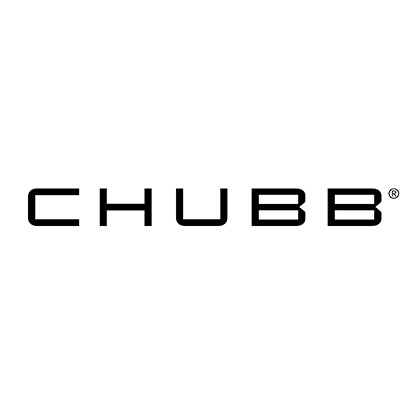Chubb’s Q1 net income fell by more than 75% year-on-year to $252 million as a result of financial market volatility in the credit, equity and foreign exchange markets, with the firm’s book value per share decreasing by 5.5% in the quarter.
 The insurer and reinsurer highlights the mark-to-market impact from financial market volatility in its investment and variable annuity reinsurance portfolios, as well as some unfavourable foreign currency movement.
The insurer and reinsurer highlights the mark-to-market impact from financial market volatility in its investment and variable annuity reinsurance portfolios, as well as some unfavourable foreign currency movement.
Book and tangible book value per share declined by 5.5% and 7.5%, respectively, from the end of 2019, standing at $115.64 and $72.29, respectively. Overall, Chubb has announced net realized and unrealized losses of $3.7 billion, of which just under 60%, or $2.2 billion sits within the investment portfolio.
Realized losses reached $946 million, principally comprised of $560 million related to the negative impact on its variable annuity reinsurance portfolio; $129 million related to the adoption of new accounting guidance; $103 million of impairment related to certain securities Chubb plans to sell; $71 million of foreign exchange losses; and $83 million of other realized losses.
Chubb adds that foreign exchange losses also had an unfavourable impact on book value to the tune of $896 million. In light of the significant impacts, Chubb says that it believes this market price-driven impact will likely be short lived, adding that the mark had already substantially recovered as of April 20th, 2020.
Evan Greenberg, Chairman and Chief Executive Officer (CEO) of Chubb, commented: “Chubb had a very good first quarter that demonstrated the underlying health and strength of our company as we entered this period of the COVID-19 global pandemic. Core operating income per share of $2.68 was up 5.5% from prior year, and our underwriting results were highlighted by a P&C combined ratio of 89.1%. We grew P&C premiums globally 9.3% in constant dollars as we continued to benefit from improved rate to exposure, particularly in our commercial P&C business – a positive and necessary trend that continued into April.
“The coronavirus is delivering a severe blow to the global economy. How long and how deep is unknown. It will have a major impact on the global insurance industry in terms of both losses and revenue. For Chubb, we expect our premium growth momentum to be impacted for a period as insurance exposures in important areas shrink. This will be an earnings event for our company; our balance sheet and liquidity remain strong.”
In Q1 2020, the financial impact of the COVID-19 pandemic on Chubb was limited, but the re/insurer stressed that it expects the event to have a meaningful impact on its revenue and operating income in Q2 and potentially beyond.
Chubb’s pre-tax catastrophe losses reached $237 million in the quarter, and included $13 million related to the global pandemic, which the firm will treat as a standalone cat event going forward. Overall, catastrophe losses declined year-on-year for Chubb, contributing 3.3 percentage points of the combined ratio.
While catastrophe losses had a slightly more favourable impact on the company’s Q1 performance, favourable prior year reserve development declined to $118 million from $204 million in Q1 2019, contributing 1.7 percentage points of the combined ratio, compared with 3.1 percentage points in Q1 2019.
The re/insurer’s P&C underwriting income totalled $778 million in the first-quarter of the year, which represents growth of more than 9% on the prior year quarter, and leads to a combined ratio of 89.1%, which is in line with last year. Global P&C underwriting income amounted to $764 million in the period, up almost 20%, with a combined ratio of 89.2% against 90.2% in Q1 2019.
Net premiums written jumped to more than $7.33 billion for Chubb in Q1 2020, helped by growth in both Global P&C and North America Agriculture Insurance.
Within Global Reinsurance, Chubb has reported net premiums written of $218 million, which is up 8.4% on the prior year period. The segment’s combined ratio hit 76.1%, against 76.8% a year earlier.
Pre-tax net investment income climbed 3.1% to $861 million, while adjusted net investment income grew by 1.3% to $893 million, when compared with the same period in 2019.
“Insurance has an important role to play in society and in the economy, and at Chubb we are doing our job to support our customers, employees and business partners, all of whom rely on us. We are operating day to day at a very high level globally and I am confident Chubb will weather this difficult time and emerge stronger.
“As the U.S. gains better control over the virus and we look forward to reopening the economy, the ability to test, digitally trace and isolate is fundamental to suppressing the spread of the virus while returning to more normal economic and social activity. It is also important at this time that we do not add unnecessarily to the great uncertainty we are already experiencing.
“To that end, we should prevent self-inflicted harm from government attempts to force insurers to retroactively pay uncovered business interruption claims, which is simply unconstitutional,” said Greenberg.
This isn’t the first time the Chubb CEO has commented on the legislative action targeting COVID-19-related business interruption insurance. In a recent interview with Bloomberg, Greenberg warned that such measures could bankrupt the industry.
Chubb, like many other global re/insurers, has made a sizeable commitment to pandemic relief efforts globally. Additionally, the company also said previously that throughout the duration of the pandemic, it will not layoff any of its employees.
First-quarter results season has only just begun and the financial implications of the COVID-19 pandemic have varied. Although, it’s become clear that companies are expecting both the claims experience and the recessionary impacts to be elevated in the second-quarter and, dependent on the duration of the pandemic, even further into 2020.


